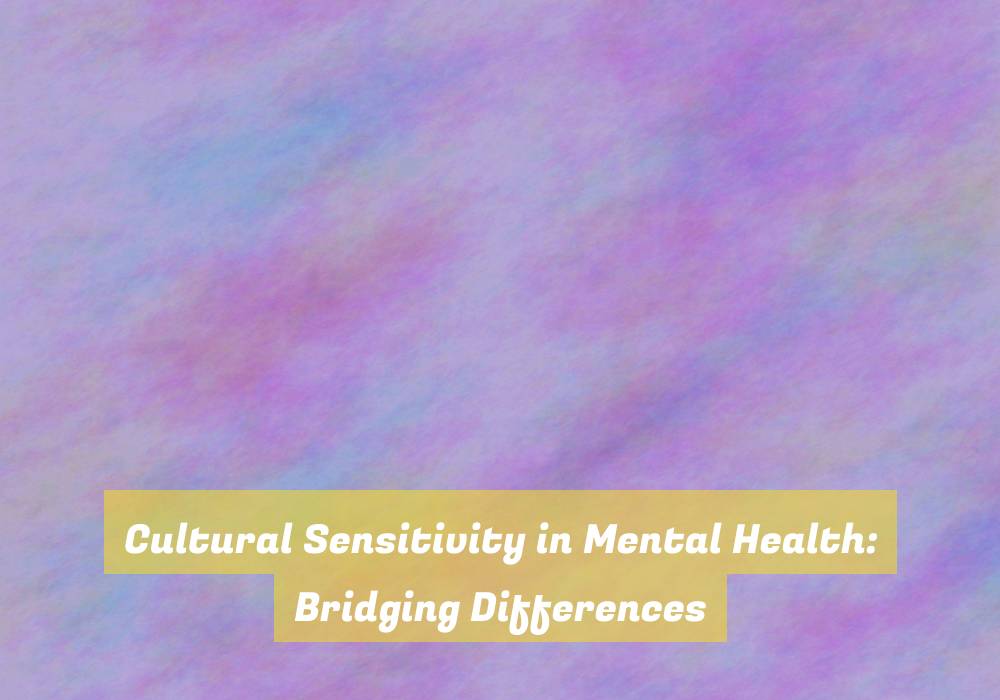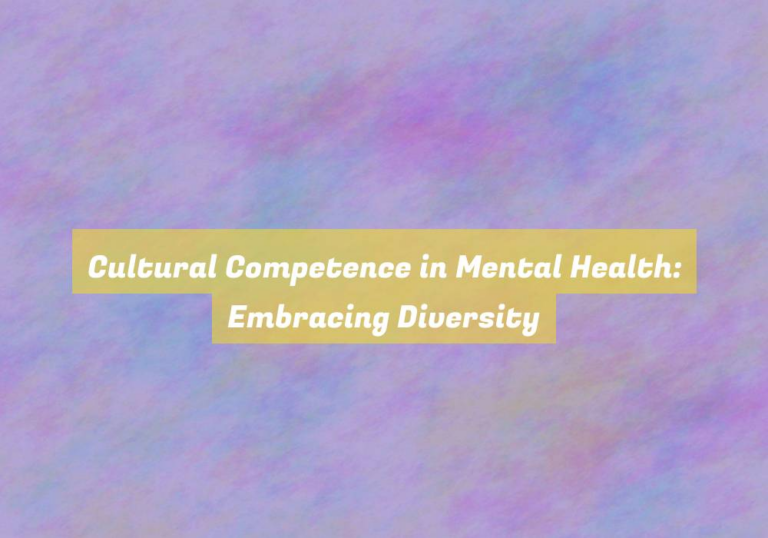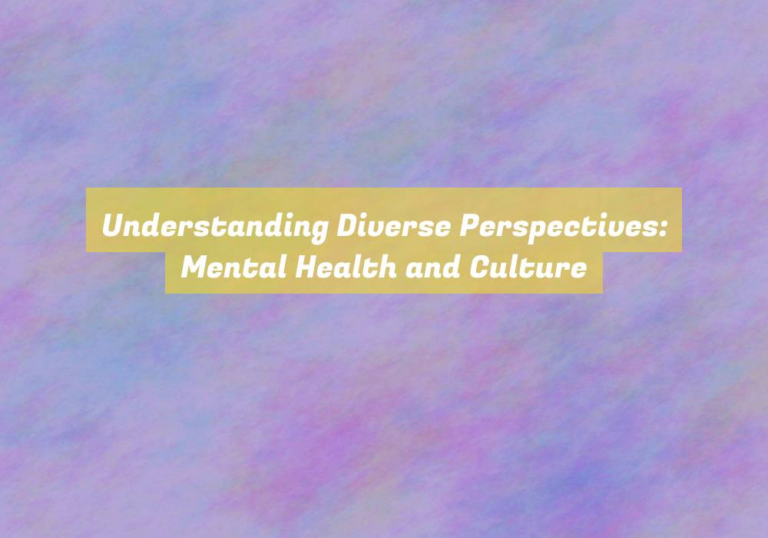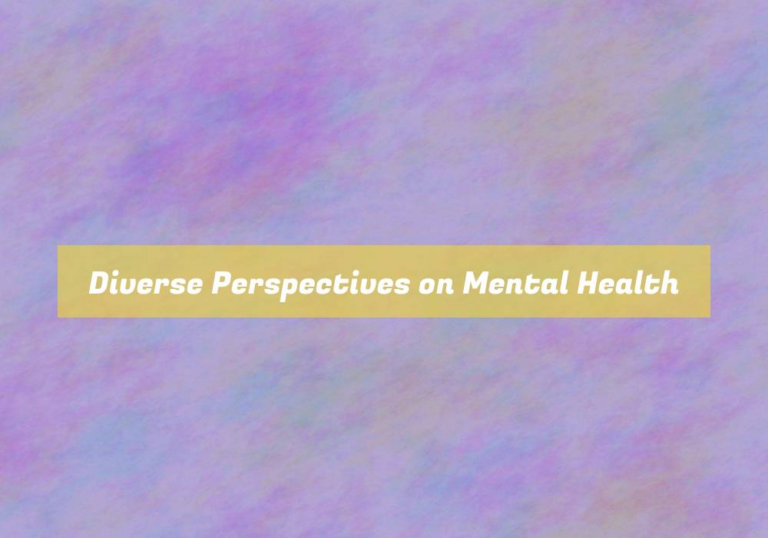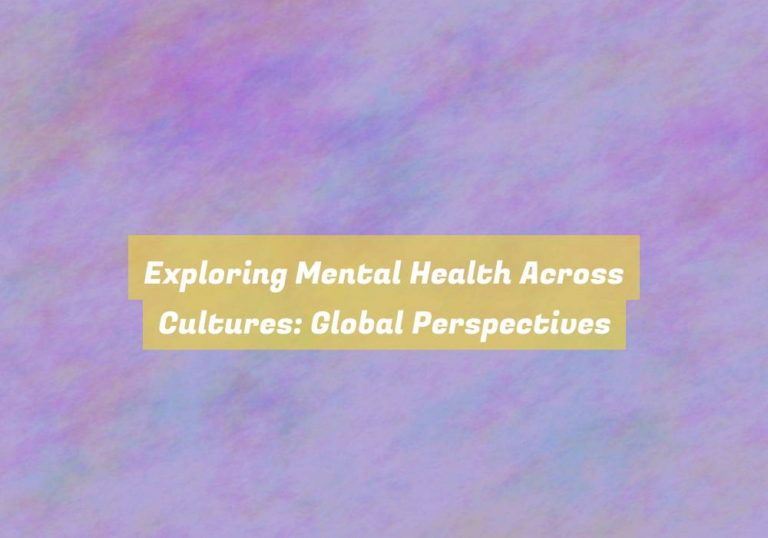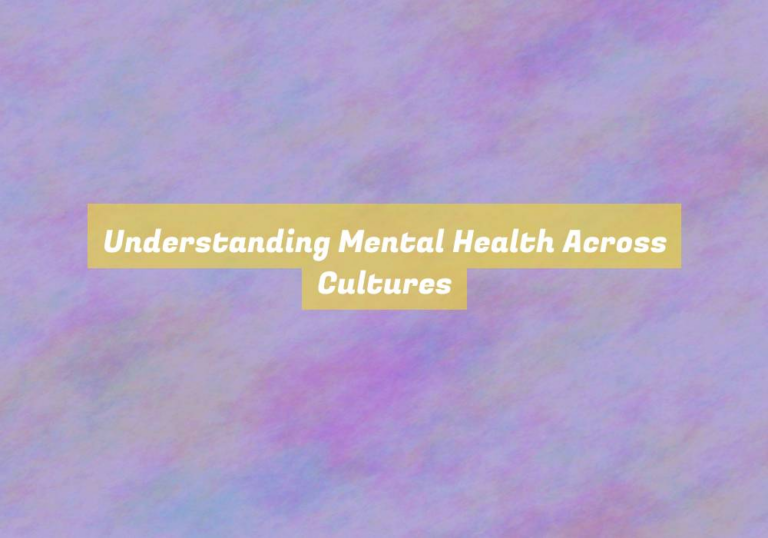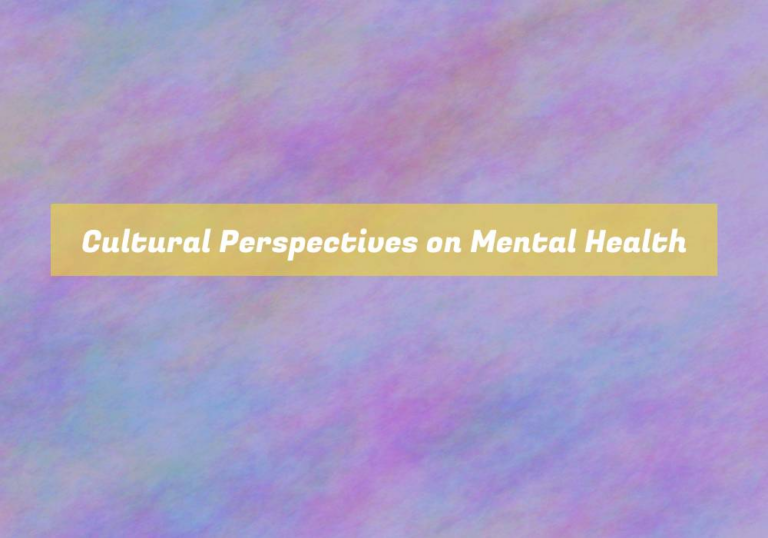Cultural Sensitivity in Mental Health: Bridging Differences
Have you ever considered the impact of cultural sensitivity on mental health care?
As mental health professionals, itG??s essential to recognize the diverse cultural contexts in which individuals experience and express their emotional well-being. Understanding how cultural background, beliefs, and values influence mental health is crucial for providing effective and inclusive care.
But how can we bridge these differences to ensure that everyone receives the support they need? Join us as we explore the complexities of cultural sensitivity in mental health and the strategies for overcoming these challenges.
Understanding Cultural Contexts
Understanding cultural contexts is essential for providing effective mental health care to individuals from diverse backgrounds. ItG??s crucial to recognize that different cultures have unique beliefs, values, and norms that influence how mental health is perceived and addressed. By understanding these cultural contexts, mental health professionals can tailor their approach to better meet the needs of their clients. This involves being aware of cultural nuances related to stigma, help-seeking behaviors, and familial involvement in treatment.
When you understand the cultural context of a client, you can establish a stronger therapeutic alliance. This connection is built on trust and understanding, which are vital for effective treatment outcomes. By acknowledging and respecting cultural differences, you create a safe space where clients feel validated and understood. This, in turn, encourages open communication and a willingness to engage in treatment.
Moreover, understanding cultural contexts helps in avoiding misunderstandings or misinterpretations that may arise from cultural differences. By being culturally sensitive, you can ensure that your interventions are aligned with the clientG??s cultural beliefs and practices. This can lead to more meaningful and effective mental health care that respects and integrates the clientG??s cultural background.
Impact of Cultural Competence
Culturally competent mental health care positively impacts treatment outcomes and enhances the overall therapeutic experience for clients from diverse backgrounds. When mental health professionals take the time to understand and respect the cultural nuances of their clients, it fosters trust and rapport. This, in turn, leads to improved communication and collaboration in the treatment process. Cultural competence also helps in identifying and addressing any cultural barriers that may exist, ensuring that the treatment approach is tailored to meet the specific needs of the individual.
Moreover, cultural competence in mental health care reduces the stigma associated with seeking help. When clients feel understood and respected within the cultural context, theyG??re more likely to engage in treatment and follow through with recommendations. This can lead to better treatment adherence and, ultimately, improved mental health outcomes.
Additionally, culturally competent care promotes a more holistic understanding of the client, incorporating their cultural beliefs and practices into the treatment plan. This can lead to more effective interventions and a deeper sense of validation for the clientG??s experiences.
Strategies for Inclusive Care
To ensure inclusive care in mental health, consider implementing practical strategies that acknowledge and embrace the cultural diversity of clients. Start by actively seeking to understand each clientG??s unique cultural background. This involves asking open-ended questions about their cultural beliefs, practices, and values.
Additionally, itG??s important to create a welcoming environment that reflects the diversity of the clients you serve. This can be achieved through the use of culturally relevant decor, literature, and resources in your office or waiting area.
Another crucial strategy is to provide culturally competent therapy and treatment. This means tailoring your approach to align with the clientG??s cultural norms and preferences. For example, some clients may prefer a more collaborative decision-making process, while others may expect a more directive approach from their mental health provider.
Furthermore, itG??s essential to collaborate with community resources and organizations that specialize in serving diverse cultural groups. By building partnerships with these entities, you can ensure that your clients have access to additional support and resources that are sensitive to their cultural needs.
Overcoming Language and Communication Barriers
Consider implementing bilingual staff or interpreters to facilitate effective communication with clients who face language barriers in mental health care. Language and communication barriers can significantly hinder the provision of mental health services to individuals from diverse cultural backgrounds. By having bilingual staff or interpreters available, you can ensure that clients are able to fully express their thoughts, feelings, and experiences. This can lead to more accurate assessments, better treatment planning, and improved therapeutic outcomes.
In addition to having bilingual staff or interpreters, itG??s important to provide translated materials such as intake forms, consent forms, and educational resources in multiple languages. This can help clients better understand the services being provided and their rights as patients. It also demonstrates a commitment to inclusivity and respect for diverse linguistic backgrounds.
Furthermore, training your staff in effective cross-cultural communication can also make a significant difference. This includes understanding the impact of nonverbal communication, recognizing cultural differences in communication styles, and being sensitive to the use of interpreters in the therapeutic process. These strategies can help bridge the communication gap and ensure that all clients receive the mental health care they need.
Conclusion
In conclusion, cultural sensitivity in mental health is crucial for providing inclusive and effective care.
Understanding the cultural contexts of individuals and implementing strategies for inclusive care can bridge differences and improve mental health outcomes.
Overcoming language and communication barriers is essential for building trust and rapport with diverse populations.
By prioritizing cultural competence, mental health professionals can ensure that all individuals receive the support and care they need.

